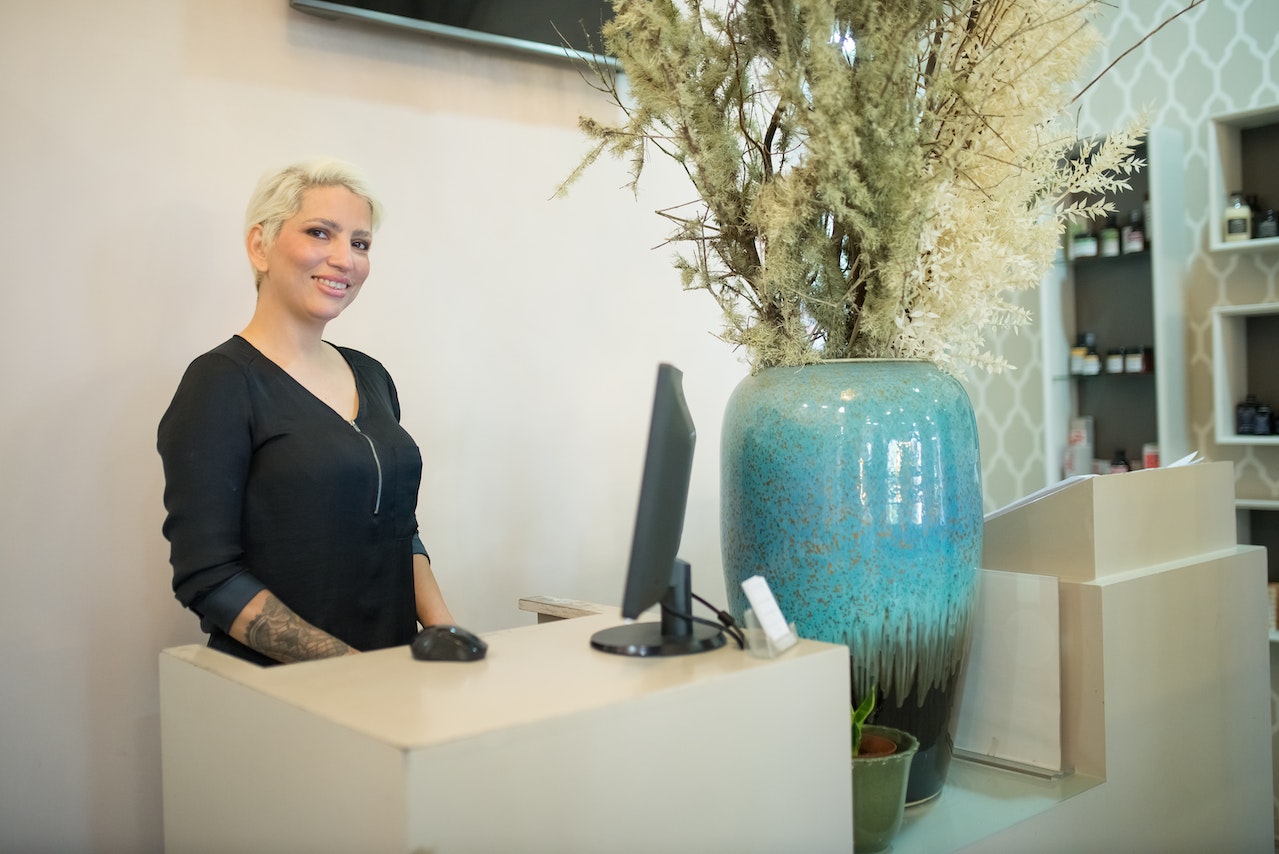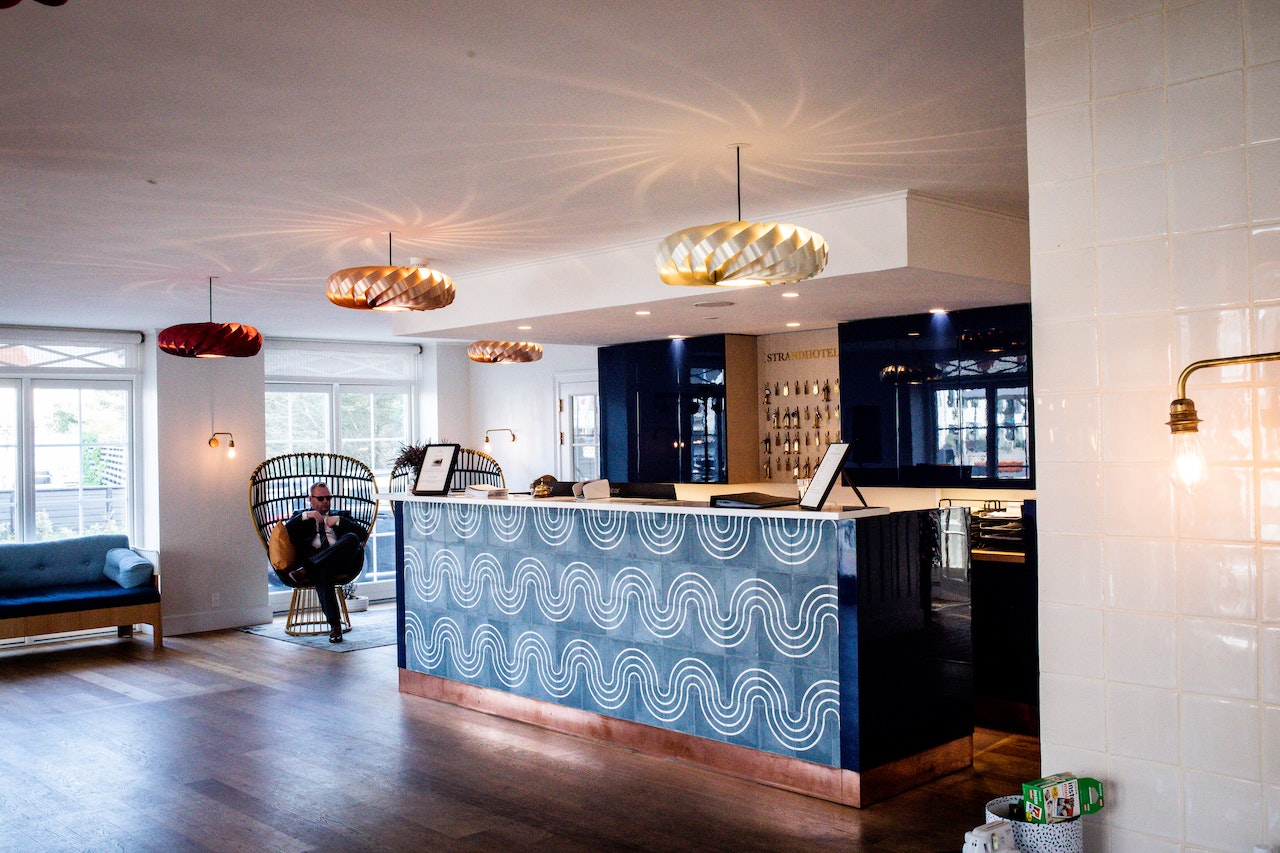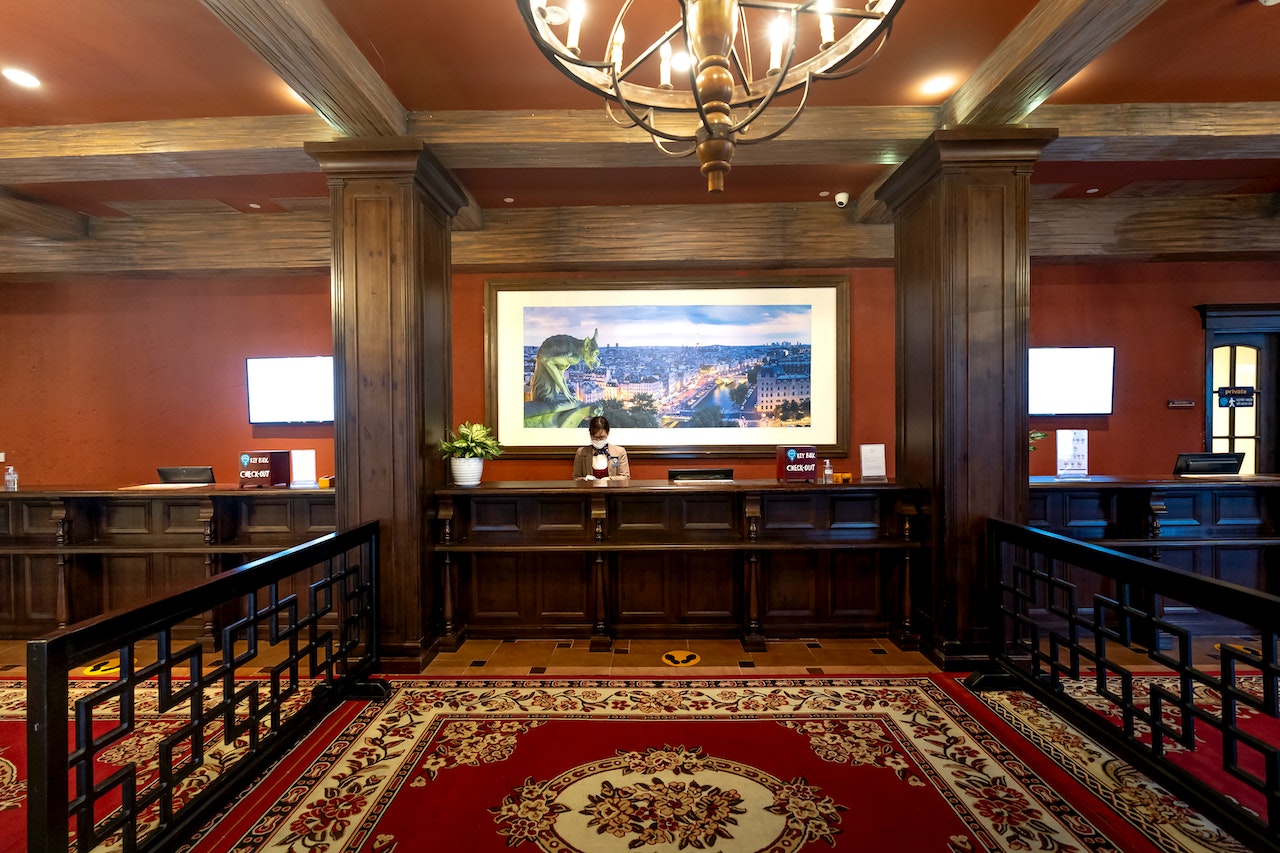You’ve invested your time and money into making your Airbnb property the best it can be. But what happens when guests don’t play by the rules? Welcome to the tricky terrain of Airbnb evictions. Now, before you get jumpy, understand this guide isn’t a substitute for legal advice. But we’re here to arm you with a toolkit of general guidelines to handle sticky situations.
Cool?
Eviction is the last thing any host wants to think about, but it’s like a spare tire—you’re glad it’s there when you need it. Whether you’re dealing with the squatters, party animals, or rule breakers, knowing how to properly evict a guest can save you time, stress, and maybe even a bit of your sanity.
And using AI-powered guest screening software like Autohost helps you weed out the chaff to minimize the risk of problematic rentals. It uses advanced analytic tools to monitor a guest’s social media profile, financial history, and patterns. As a result, you can keep evictions to a minimum by being proactive.
Understanding Grounds for Eviction
Alright, let’s dive right in. Not all bad situations call for eviction. So when does it make sense to kick someone out? What are the big No’s that warrant such a drastic action?
Violation of House Rules
Remember those house rules you spent so much time crafting? They’re not just for decoration. Have you had guests who treated those rules more like “suggestions?” From unauthorized pets to smoking in a non-smoking unit, blatant disregard for house rules can be grounds for eviction.
Illegal Activities
It’s a no-brainer, right? If someone is involved in illegal activities on your property, you have not just the right but an obligation to evict. Drugs, theft—you name it; if it’s breaking the law, it’s breaking your contract, too.
Damage to Property
We’re not talking about accidental spills or minor scuffs on the wall. Has a guest ever made you say, “Did an earthquake hit this room, or what?” Significant damage to your property is not only a deal-breaker but also possibly criminal.
Safety Concerns
Guests should feel like your home is their home—within reason, of course. But if they make other guests or neighbors feel unsafe, then Houston, we have a problem. Harassment, intimidation, or any form of violence? Instant ticket out.
Exceeding the Maximum Number of Guests
Your two-bedroom isn’t a clown car. When the number of guests starts to multiply like rabbits, it’s time to draw the line. Overcrowding strains your resources and can be a legal liability.
Legal Considerations
Alright. You’ve got a potential eviction on your hands. Time to channel your inner Sherlock Holmes, because you’re about to do some investigative work. Knowing the Airbnb legal landscape is more than a good-to-know; it’s a must-know.

When it comes to legal aspects, it’s important to be aware of local laws and regulations governing short-term rentals and evictions. For example, in New York, the Multiple Dwelling Law (MDL) addresses issues related to short-term occupancy in residential buildings. This law permits “incidental and occasional occupancy” for less than 30 consecutive days without monetary compensation to the permanent occupants. Subletting, which involves leasing from the primary tenant, and roommate arrangements are subject to specific provisions under New York Real Property Law. These laws also affect tenants in rent-stabilized apartments, particularly regarding profiteering from renting to short-term occupants.
Familiarizing Yourself with Local and State Laws
Do you know what your state laws say about eviction? Before you even think about pressing the “evict” button, you better make sure you’re on solid legal ground. Think about things like “right to entry” or the specifics around “short-term rentals.” Rules can vary wildly, from city ordinances all the way to federal laws.
Airbnb Terms of Service
Skimmed through Airbnb’s T&Cs while setting up your listing? We’ve all done it. But now it’s time to go back and read that bad boy cover to cover. Airbnb has its own set of rules when it comes to eviction, and you don’t want to find yourself in hot water for not following them.
Contractual Agreements with the Guest
Your house rules are part of the agreement between you and your guest. But did you ever go the extra mile and get a separate, signed rental agreement? If so, kudos! It can add an extra layer of protection for you, especially if things go south.
Rights of the Guest
Let’s not forget this one. Your guests have rights too, and ignoring them can land you in some serious legal doo-doo. From privacy to lodging conditions, ensure you’re fully aware of what your guests are entitled to before making any big moves.
Prevention is Better than Cure
If you can stop a problem before it even starts, you’re already winning. So, how can you prep your Airbnb fort and make it eviction-proof?
Let’s dig in.
Clear and Comprehensive House Rules
You’ve heard the saying: “An ounce of prevention is worth a pound of cure.” Crystal-clear house rules are your first line of defense. And no, this isn’t the time to be wishy-washy. Spell out what’s acceptable and what’s not, in no uncertain terms.
Thorough Guest Vetting
Your home is your castle, and not everyone deserves an invite. Ever thought about setting some basic guest criteria? Verified ID, positive reviews, and the like can go a long way in keeping the riff-raff out.
Setting Up Security Measures
Is your place as secure as Fort Knox? It doesn’t have to be, but some basic security measures can help. Think security cameras in common areas, or smart locks that can be controlled remotely. Just be sure you’re not creeping on your guests—remember those legal considerations?
Effective Communication with Guests
Ever had a small issue blow up because no one talked about it? Yep, communication is key. Be proactive. Reach out to your guests at the first sign of trouble. Sometimes, a polite but firm conversation can resolve issues before they escalate into eviction-worthy offenses.
You’ve got your ducks in a row when it comes to preventing problems and understanding the law. But life is unpredictable, and you might still find yourself facing an eviction scenario. Don’t fret. The next sections will arm you with the steps and strategies you need to navigate through it like a pro. Stay tuned!
Initial Steps Before Eviction
Before you go full Rambo and start the eviction, there are a few steps to take that might either resolve the issue or at least put you on solid ground if you do need to proceed. Don’t shoot from the hip; make sure you’ve got all your bases covered first.
Documenting the Issue
Got your smartphone handy? Time to snap some pics or capture video evidence. Whether it’s damage to your property or a neighbor’s written complaint, documentation is key. Keep all text messages, emails, and other communications with the guest—you’ll need a paper trail.
Initial Communication with the Guest
Confrontation’s tough, but this is your home we’re talking about. A face-to-face conversation is often the best first step. Stay calm, state the facts, and listen to their side of the story. Sometimes, misunderstandings can be cleared up without further action.
Consulting Airbnb Support
Airbnb’s got your back, right? Well, sort of. Before you proceed with eviction, get them in the loop. They may have some mediation services or advice that can help both parties find a middle ground.
Issuing a Formal Warning
Still no resolution? A formal warning might be the wake-up call your guest needs. Make it written, specific, and refer to the rules or laws being broken. Email it, text it, or even hand it to them in person. Just make sure you keep a copy for your records.
The Eviction Process
Alright, you’ve tried diplomacy, but now it’s eviction time. It’s the nuclear option, for sure, but sometimes it’s the only option left on the table.

Informing Airbnb and Following their Procedures
Before you do anything, contact Airbnb and inform them of your intention to evict. Follow their guidelines to a T, even if it feels like jumping through bureaucratic hoops. They can help facilitate the process and protect you against any retaliatory reviews.
Legal Procedures (If Applicable)
If your guest refuses to leave after you’ve gotten Airbnb involved, you may have no choice but to initiate legal eviction procedures. This could involve serving an official notice and possibly even getting the authorities involved. It’s a hassle and can be time-consuming, but skipping this step can land you in hot water.
Communication with the Guest During Eviction
Even in the middle of an eviction, clear communication is crucial. Inform the guest of each step you’re taking, and do it in writing whenever possible. You might be tempted to go silent, but that can complicate matters, especially if it ends up in a legal arena.
Security Concerns and Measures
Kicking someone out can get tense. If you have any reason to believe the eviction could lead to a confrontation, don’t hesitate to have security or law enforcement present. Your safety, and the safety of other guests or neighbors, is paramount.
Post-Eviction Steps
You’ve weathered the storm and successfully evicted a problematic guest. Time to breathe a sigh of relief, but don’t kick back just yet. There’s some important post-game action you should take.
Assessing and Documenting Property Damage
First thing’s first—inspect your property for any damage. Take photos, and if necessary, get estimates for repairs. You’ll need all this for your records, and possibly for reimbursement from the guest or Airbnb.
Filing for Damages or Security Deposits
If your property suffered damage, file for compensation through Airbnb’s Host Guarantee or Resolution Center. Do this ASAP because there are often time limits on these claims.
Updating House Rules and Screening Processes
Time for some reflection. Was there something in your house rules or guest screening process that could’ve flagged this problem earlier? Update these protocols to better safeguard against future problematic guests.
Review and Ratings Management
Here’s the tricky part—dealing with reviews. If you followed Airbnb’s procedures, they might remove any unfair negative reviews from the evicted guest. But be prepared to address the situation tactfully in your host’s response, just in case it stays on your record.
Financial Implications of Evictions
Let’s talk about the elephant in the room: money. Evictions aren’t just emotionally draining; they can also hit you right in the wallet. So what are the financial aspects you need to consider?
Lost Revenue
Kicking out a guest means an empty property, at least for a little while. That’s lost income, pal. Ever thought about how you’re going to recoup that? You could try last-minute deals or special offers to fill the vacancy, but it’s a roll of the dice.
Legal Costs
If you’ve had to pull the legal card, brace yourself for some expenses. Court fees, lawyer charges, and even the cost of serving eviction notices—it all adds up. Got a rainy-day fund? Now’s the time to dip into it.
Repair and Cleaning Costs
Boot out a messy or destructive guest, and you’re left with the aftermath. Whether it’s a shattered vase or a wine-stained carpet, repairs and deep cleaning can cost you both time and money. Sure, you can go after the guest for damages, but that’s another process in itself.
Insurance Premiums
Had to make a claim on your property insurance? Be prepared for your premiums to take a hike. Insurance companies aren’t too fond of risks, and an eviction might make you look like a bigger gamble.
Emotional Toll and Reputation Management
Phew, if evictions were only about money, right? But there’s also an emotional side to this whole ordeal that you can’t ignore.
Stress and Anxiety
The eviction process is a nerve-wracking experience, and it can feel like you’re walking a tightrope. Your home is your sanctuary, and having to evict someone from it can be emotionally taxing. Got a support network? Lean on them.
Negative Reviews and Public Perception
No matter how justified, an eviction can result in a negative review that sticks to your profile like gum on a shoe. You can mitigate this by providing an open and honest response to any negative reviews, but the ding to your reputation might linger.
Strained Relations with Neighbors
Your neighbors didn’t sign up for drama. An eviction, especially a noisy or confrontational one, can sour your relationships in the neighborhood. Time for some damage control. Maybe even a peace offering—how about some freshly baked cookies?
Learning and Moving On
The good news? Every experience, even the unpleasant ones, offers a chance to learn and improve. Take some time to reflect on the situation. What red flags did you miss? Could you have handled any stage of the process differently? Make the necessary adjustments and move on.
Evictions are a rollercoaster, for sure—emotionally, financially, and reputation-wise. But with the right strategies and a well-thought-out approach, you can weather the storm. Your next guests? They’re gonna benefit from all the lessons you’ve learned, making you an even more awesome host than you already were.
Resources and Tools to Navigate Evictions
Now that you’ve got the 411 on handling evictions like a boss. But let’s add some extra arrows to your quiver. Here are some resources and tools you should definitely have in your back pocket.
Legal Resources
Local Housing Authorities: Get the skinny on local laws and regulations.
Online Legal Forums: Websites like Avvo or LegalAdvice on Reddit can offer quick, general advice. Just remember, it’s not tailored to your specific situation.
Airbnb Resources
Airbnb Help Center: It’s a treasure trove of articles and FAQs that cover the eviction process.
Airbnb Community Forums: Connect with other hosts who’ve been there, done that. They might have some tips or tricks that aren’t in the rulebook.
Tech Tools
Smart Locks: Allows you to control property access remotely.
Document Scanning Apps: Scan and save all important papers right on your phone.
The Autohost Advantage: Your Safety Net
Want an extra layer of protection? Check out Autohost. This AI-powered tool assesses the risk level of potential guests, making it easier for you to spot trouble before it walks through your front door.
Think of it as your virtual bouncer, keeping the riff-raff out so you can enjoy peace of mind.

































